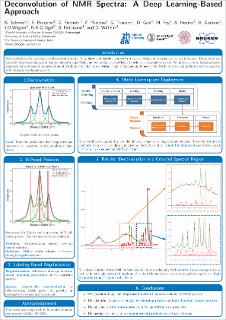Please use this identifier to cite or link to this item:
https://doi.org/10.21256/zhaw-27336Full metadata record
| DC Field | Value | Language |
|---|---|---|
| dc.contributor.author | Schmid, Nicolas | - |
| dc.contributor.author | Bruderer, Simon | - |
| dc.contributor.author | Fischetti, Giulia | - |
| dc.contributor.author | Paruzzo, Federico | - |
| dc.contributor.author | Toscano, Giuseppe | - |
| dc.contributor.author | Graf, Dominik | - |
| dc.contributor.author | Fey, Michael | - |
| dc.contributor.author | Henrici, Andreas | - |
| dc.contributor.author | Grabner, Helmut | - |
| dc.contributor.author | Wegner, Jan Dirk | - |
| dc.contributor.author | Sigel, Roland K. O. | - |
| dc.contributor.author | Heitmann, Björn | - |
| dc.contributor.author | Wilhelm, Dirk | - |
| dc.date.accessioned | 2023-03-14T10:40:31Z | - |
| dc.date.available | 2023-03-14T10:40:31Z | - |
| dc.date.issued | 2022-07-13 | - |
| dc.identifier.uri | https://euromar2022.org/wp-content/uploads/2022/07/Euromar-AbstractBook_2022-A4_22jul_new.pdf | de_CH |
| dc.identifier.uri | https://digitalcollection.zhaw.ch/handle/11475/27336 | - |
| dc.description.abstract | We introduce a deep learning-based deconvolution approach for 1H NMR spectra, developed by leveraging concepts from the field of physics informed-learning, intelligent labeling, and tailored high dynamic range (HDR) spectral preprocessing. Since automation and faster workflows are major concerns in NMR spectroscopy, the algorithm handles uncorrected spectra without strict assumptions on phase and baseline correction as well as line shape. Due to the lack of high quality and consistently labeled experimental spectra in quantities needed to train modern deep learning models, we relied on synthetic spectra creation. Moreover, instead of training with synthetic spectra consisting of single lines, we created synthetic multiples that further supported a realistic deconvolution. We achieved super-human performance on corrected and uncorrected synthetic spectra. Finally, and most importantly, the results on synthetic data translate well to experimental spectra despite the covariate shift. Thus, this tool is a promising candidate for automated expert-level deconvolution of experimental HDR 1H NMR spectra. | de_CH |
| dc.language.iso | en | de_CH |
| dc.publisher | ZHAW Zürcher Hochschule für Angewandte Wissenschaften | de_CH |
| dc.rights | Licence according to publishing contract | de_CH |
| dc.subject | NMR spectroscopy | de_CH |
| dc.subject | Deconvolution | de_CH |
| dc.subject | Machine learning | de_CH |
| dc.subject | Deep learning | de_CH |
| dc.subject.ddc | 006: Spezielle Computerverfahren | de_CH |
| dc.subject.ddc | 530: Physik | de_CH |
| dc.title | Deconvolution of NMR spectra : a deep learning-based approach | de_CH |
| dc.type | Konferenz: Poster | de_CH |
| dcterms.type | Text | de_CH |
| zhaw.departement | School of Engineering | de_CH |
| zhaw.organisationalunit | Institut für Angewandte Mathematik und Physik (IAMP) | de_CH |
| zhaw.organisationalunit | Institut für Datenanalyse und Prozessdesign (IDP) | de_CH |
| dc.identifier.doi | 10.21256/zhaw-27336 | - |
| zhaw.conference.details | European Conference on Magnetic Resonance (EUROMAR), Utrecht, The Netherlands, 10-14 July 2022 | de_CH |
| zhaw.funding.eu | No | de_CH |
| zhaw.originated.zhaw | Yes | de_CH |
| zhaw.pages.start | 242 | de_CH |
| zhaw.parentwork.editor | Prisner, Thomas | - |
| zhaw.publication.status | publishedVersion | de_CH |
| zhaw.publication.review | Peer review (Abstract) | de_CH |
| zhaw.title.proceedings | EUROMAR 2022 Abstractbook | de_CH |
| zhaw.webfeed | Datalab | de_CH |
| zhaw.funding.zhaw | Maschinelles Lernen für NMR-Spektroskopie | de_CH |
| zhaw.author.additional | No | de_CH |
| zhaw.display.portrait | Yes | de_CH |
| Appears in collections: | Publikationen School of Engineering | |
Files in This Item:
| File | Description | Size | Format | |
|---|---|---|---|---|
| 2022_Schmid-etal_Deconvolution-of-NMR-spectra_EUROMAR-Poster.pdf | 3 MB | Adobe PDF |  View/Open |
Show simple item record
Schmid, N., Bruderer, S., Fischetti, G., Paruzzo, F., Toscano, G., Graf, D., Fey, M., Henrici, A., Grabner, H., Wegner, J. D., Sigel, R. K. O., Heitmann, B., & Wilhelm, D. (2022). Deconvolution of NMR spectra : a deep learning-based approach [Conference poster]. In T. Prisner (Ed.), EUROMAR 2022 Abstractbook (p. 242). ZHAW Zürcher Hochschule für Angewandte Wissenschaften. https://doi.org/10.21256/zhaw-27336
Schmid, N. et al. (2022) ‘Deconvolution of NMR spectra : a deep learning-based approach’, in T. Prisner (ed.) EUROMAR 2022 Abstractbook. ZHAW Zürcher Hochschule für Angewandte Wissenschaften, p. 242. Available at: https://doi.org/10.21256/zhaw-27336.
N. Schmid et al., “Deconvolution of NMR spectra : a deep learning-based approach,” in EUROMAR 2022 Abstractbook, Jul. 2022, p. 242. doi: 10.21256/zhaw-27336.
SCHMID, Nicolas, Simon BRUDERER, Giulia FISCHETTI, Federico PARUZZO, Giuseppe TOSCANO, Dominik GRAF, Michael FEY, Andreas HENRICI, Helmut GRABNER, Jan Dirk WEGNER, Roland K. O. SIGEL, Björn HEITMANN und Dirk WILHELM, 2022. Deconvolution of NMR spectra : a deep learning-based approach. In: Thomas PRISNER (Hrsg.), EUROMAR 2022 Abstractbook [online]. Conference poster. ZHAW Zürcher Hochschule für Angewandte Wissenschaften. 13 Juli 2022. S. 242. Verfügbar unter: https://euromar2022.org/wp-content/uploads/2022/07/Euromar-AbstractBook_2022-A4_22jul_new.pdf
Schmid, Nicolas, Simon Bruderer, Giulia Fischetti, Federico Paruzzo, Giuseppe Toscano, Dominik Graf, Michael Fey, et al. 2022. “Deconvolution of NMR Spectra : A Deep Learning-Based Approach.” Conference poster. In EUROMAR 2022 Abstractbook, edited by Thomas Prisner, 242. ZHAW Zürcher Hochschule für Angewandte Wissenschaften. https://doi.org/10.21256/zhaw-27336.
Schmid, Nicolas, et al. “Deconvolution of NMR Spectra : A Deep Learning-Based Approach.” EUROMAR 2022 Abstractbook, edited by Thomas Prisner, ZHAW Zürcher Hochschule für Angewandte Wissenschaften, 2022, p. 242, https://doi.org/10.21256/zhaw-27336.
Items in DSpace are protected by copyright, with all rights reserved, unless otherwise indicated.